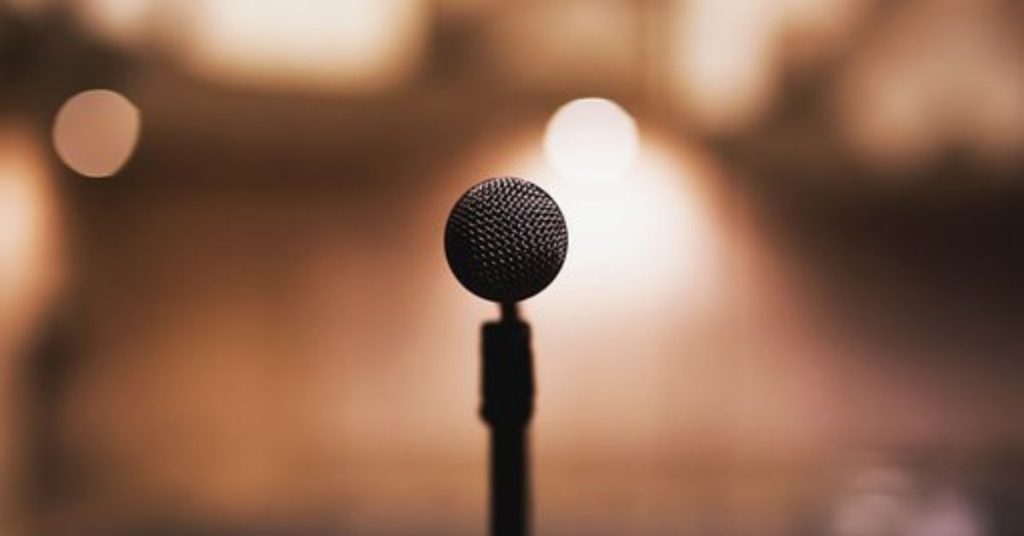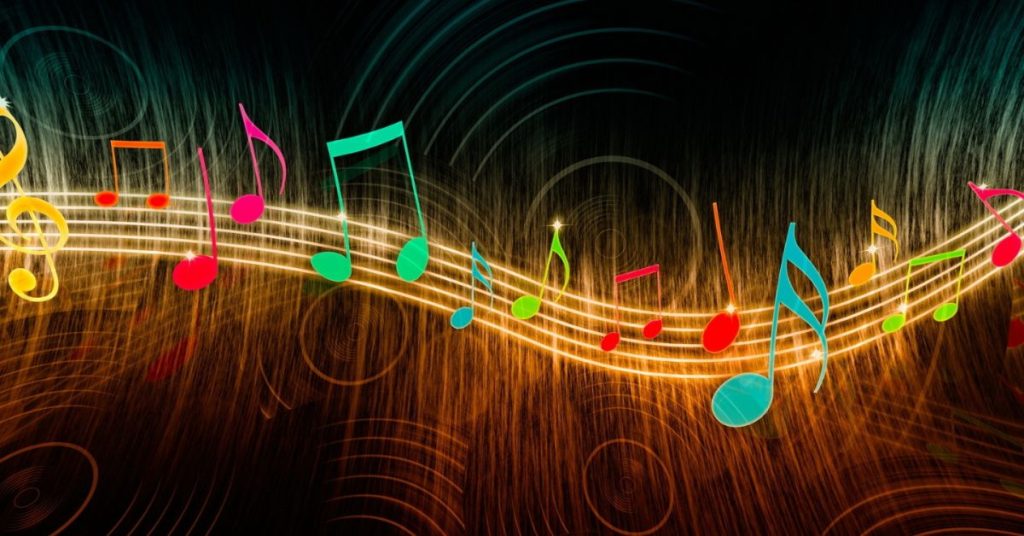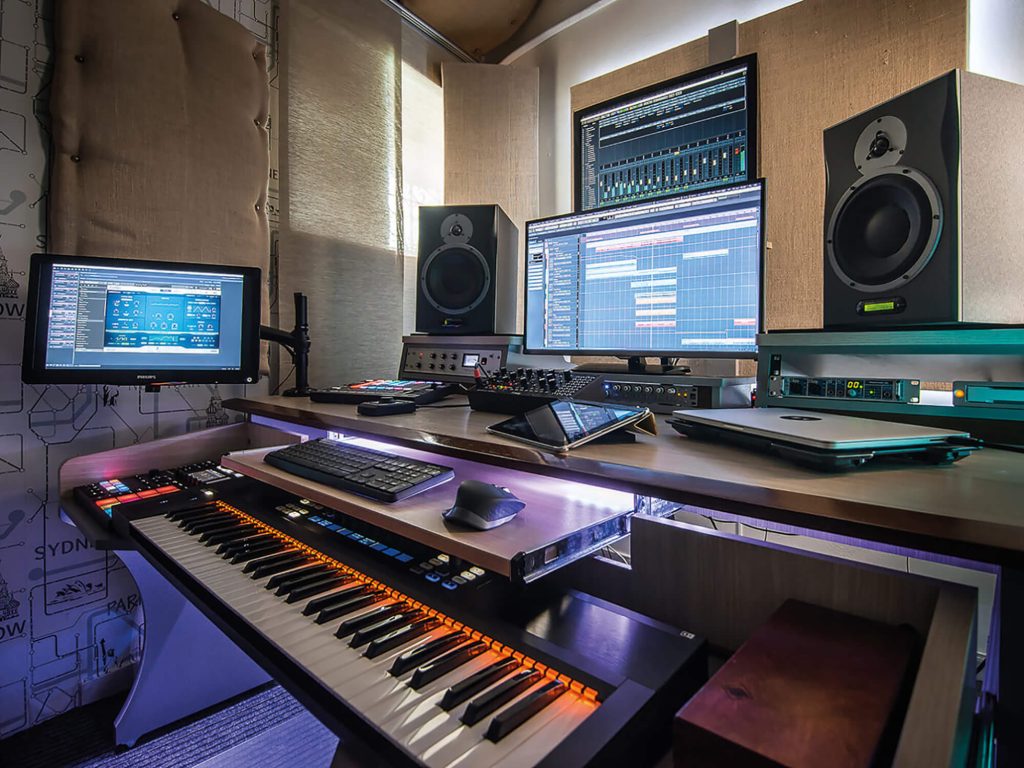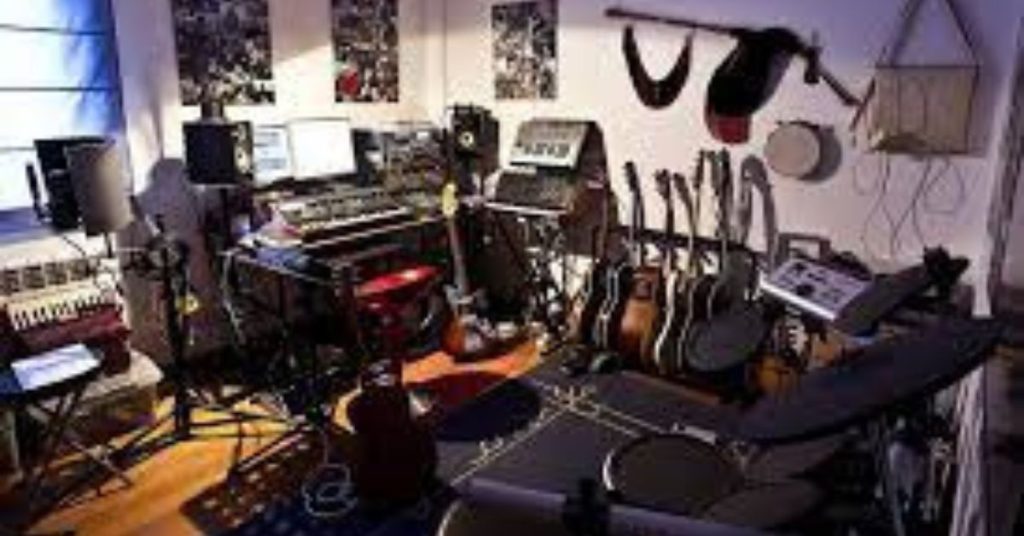In recent years, the rise of home recording studios has empowered musicians and producers to create professional-quality music from the comfort of their own spaces. The foundation of a successful home recording setup lies in acquiring the right recording equipment. In this article, we will explore the importance of essential recording equipment and how it contributes to the establishment of a functional and creative home recording studio.
The Home Recording Studio:
A home recording studio serves as a personal sanctuary where musical ideas come to life. It provides a versatile space for artists to explore their creativity, experiment with different sounds, and produce professional-quality recordings. Creating a home recording studio allows for convenience, flexibility, and the ability to work at one’s own pace.

Essential Recording Equipment for a Home Studio:
a) Microphones: A high-quality microphone is an essential tool for capturing vocal performances, instruments, and other sound sources. Condenser microphones, such as the Audio-Technica AT2020 or the Neumann U87, are commonly used for their sensitivity and accuracy. Dynamic microphones, like the Shure SM57 or the Sennheiser MD 421, are rugged and versatile options suitable for various applications.
b) Audio Interfaces: Audio interfaces act as the bridge between analog audio signals and digital recordings. These devices convert audio from microphones and instruments into a digital format that can be processed by a computer or recording software. Audio interfaces, such as the Focusrite Scarlett series or the Universal Audio Apollo series, provide high-quality preamps and reliable conversion for pristine sound capture.
c) Studio Monitors: Studio monitors, also known as reference speakers, are designed to deliver accurate and unbiased audio reproduction. They allow producers to hear the music as it truly sounds, enabling precise mixing and mastering decisions. Popular options include the Yamaha HS series, the KRK Rokit series, and the Genelec 8000 series.

d) Digital Audio Workstations (DAWs): A DAW is the central hub of a home recording studio, providing a comprehensive platform for recording, editing, mixing, and mastering music. Industry-standard DAWs, such as Ableton Live, Pro Tools, Logic Pro, or FL Studio, offer powerful tools and plugins for creative control and professional-grade production.
e) Studio Headphones: Studio headphones are crucial for critical listening, editing, and mixing. They provide detailed and accurate sound reproduction, allowing producers to make precise adjustments and achieve balanced mixes. Popular studio headphone options include the Beyerdynamic DT 770 Pro, the Sennheiser HD 650, and the Audio-Technica ATH-M50x.
Importance of Recording Equipment in a Home Studio:
a) Sound Quality: High-quality recording equipment ensures accurate sound capture, preserving the nuances, dynamics, and tonal characteristics of musical performances. This leads to professional and polished recordings that engage listeners and meet industry standards.
b) Creative Possibilities: The right recording equipment opens up a world of creative possibilities. Different microphones, audio interfaces, and plugins offer a wide range of sonic options, enabling artists and producers to experiment, shape their sound, and explore new musical territories.
c) Workflow Efficiency: Reliable recording equipment streamlines the recording process and enhances workflow efficiency. Seamless integration between microphones, audio interfaces, and DAWs allows for smooth operation, faster setup times, and easier collaboration between artists and producers.

d) Versatility and Adaptability: Investing in versatile recording equipment ensures the adaptability of a home studio. Equipment that can handle a variety of recording scenarios, from vocal tracking to instrument capturing, enables artists to pursue different genres and styles without limitations.
e) Professional Presentation: Utilizing professional-grade recording equipment elevates the overall presentation of music productions. High-quality recordings created with top-notch gear are more likely to attract listeners, industry professionals, and potential collaborators.
Conclusion:
Building a home recording studio with essential recording equipment offers musicians and producers the freedom to create, experiment, and refine their musical craft. By investing in high-quality microphones, audio interfaces, studio monitors, DAWs, and headphones, artists can achieve professional sound quality, unleash their creative potential, streamline their workflow, and present their music in a compelling and competitive manner. With the right tools at their disposal, the possibilities within the walls of a home recording studio are endless.
